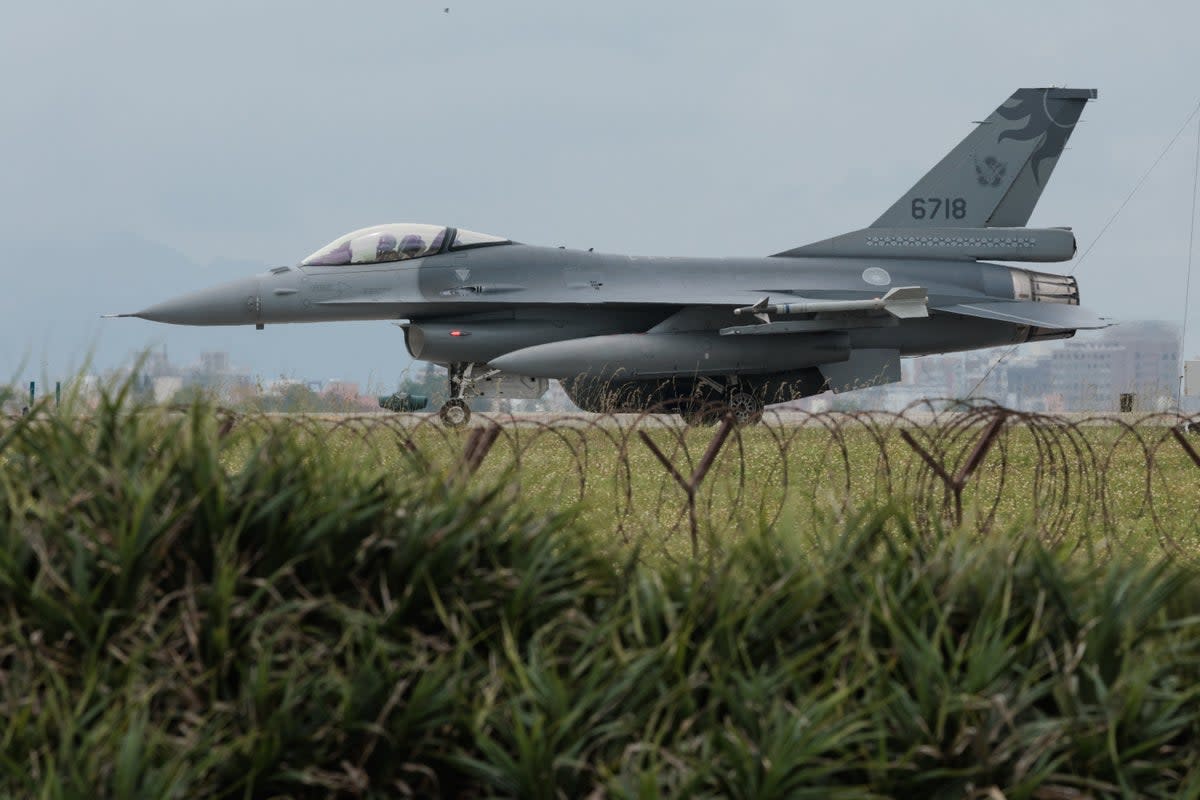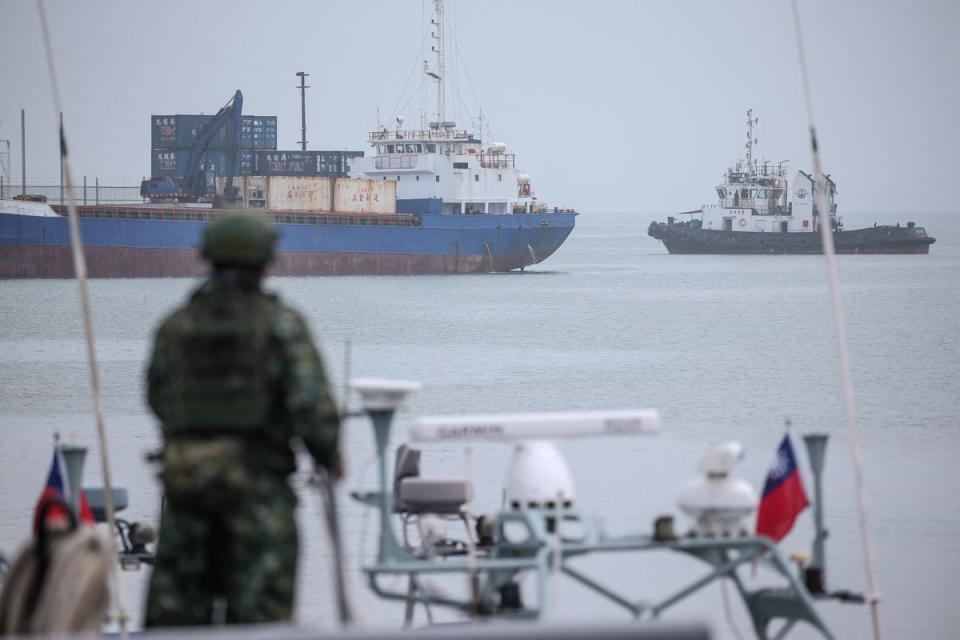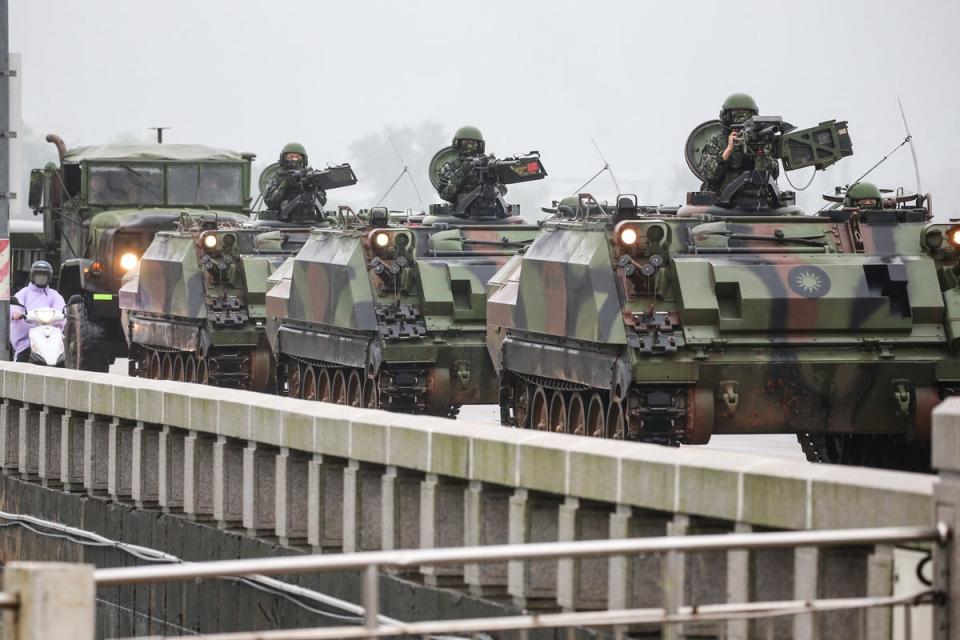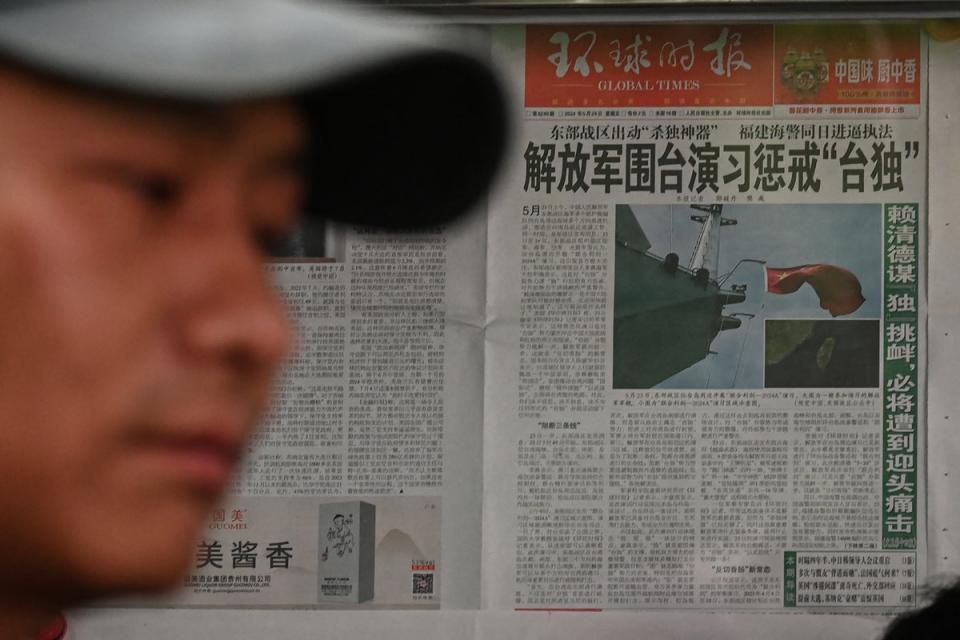China-Taiwan conflict explained: What happens if Beijing tries to invade?

Tensions between China and Taiwan soared to new heights this week as Beijing deployed warplanes and naval vessels in a mock invasion of the island to demonstrate its anger and towards the new president in Taipei.
The Chinese military openly said its two-day war games are designed to “test the [armed forces’] ability jointly seize power... and occupy key areas” around Taiwan and the island chains it controls.
Xi Jinping is flexing his military muscles in an effort to intimidate the new Taiwanese leader Lai Ching-te, who used his first speech after being inaugurated on Monday to urge China to “accept the reality” of the self-governed island’s de facto independence. China views democratically-governed Taiwan as a breakaway province, while Mr Lai says only the Taiwanese people can decide their future.
The escalation of China’s military activity around Taiwan is being watched with growing alarm from around the world, with neighbouring powers in the Asia-Pacific urging the two to maintain peace and stability.
Will China invade Taiwan?
According to US intelligence, Chinese president Xi Jinping has instructed his country’s military to “be ready by 2027" to invade Taiwan. The 70-year-old autocrat has previously vowed to ensure Taiwan is “reunited” with the mainland during his time in power, and has also said the matter of the island’s future “cannot be passed on from generation to generation”.
The CIA director William Burns has said the US must take Mr Xi’s desire to seize control of Taiwan “very seriously”, even if military conflict is not inevitable. “We do know, as has been made public, that president Xi has instructed the PLA, the Chinese military leadership, to be ready by 2027 to invade Taiwan, but that doesn’t mean that he’s decided to invade in 2027 or any other year as well,” Mr Burns said last year.

Many analysts have drawn parallels between Vladimir Putin’s invasion of Ukraine and Mr Xi’s aspirations with Taiwan. For now, Mr Burns argued, Russia’s struggle to make meaningful headway in the war in Europe despite its numerical superiority may be acting as a deterrent to Beijing.
Could Taiwan defend itself?
Shortly after the CIA chief’s warnings, Taiwan’s foreign minister Joseph Wu had said that Taipei is taking the Chinese military threat “very seriously”. “I think 2027 is the year that we need to be serious about,” Joseph Wu said in an interview with LBC.
Taiwan increased its defence budget for 2024 to a record $19.1bn, and as well as importing weapons is proactively expanding its own arms industry, including building homegrown submarines and trainer aircraft. It is developing its third and fourth domestically designed and built stealth corvettes to counter the Chinese navy, part of a strategy of asymmetrical warfare in which a smaller force counters its larger opponent by using cutting edge or nonconventional tactics and weaponry.

It is still dwarfed by China, which has the largest armed forces in the world by active duty military personnel, with over two million active soldiers and 510,000 in reserve. Taiwan, in comparison, has 169,000 active military personnel – but this is backed up by some 1.66 million “civilian warriors”, according to data from the International Institute for Strategic Studies (IISS). Earlier this year Taiwan reinstated mandatory military service of one year for all citizens, reversing the trend of the 2010s that had seen the service period steadily reduced to just a few months.
How would the US react if Taiwan was invaded?
In September 2022, Joe Biden explicitly offered US protection and said American forces would defend Taiwan in the event of a Chinese invasion. This came at the cost of angering China at a time when Sino-US relations are themselves at a low ebb, with Beijing saying it sent the wrong signal.
Washington, which has diplomatically and militarily backed Taiwan’s self-governance, is closely watching the rising tensions in the strait. The US Navy 7th Fleet is paying attention to “all of the activities” in the Indo-Pacific, a public relations officer of the fleet said, adding that it takes "very seriously" the responsibility to deter aggression in the region.

Senior US General Stephen Sklenka called for a de-escalation of tensions, saying an attack is not “inevitable or imminent” in spite of the standoff seen this week.
“At stake would be untold numbers of lives, trillions of dollars in global economic damage, and maintenance of an international order that has delivered relative peace and stability over the past 80 years. And that is why we need to work together to prevent conflict,” said lieutenant general Stephen Sklenka, Deputy Commander of US Indo-Pacific Command.

 Yahoo News
Yahoo News 
